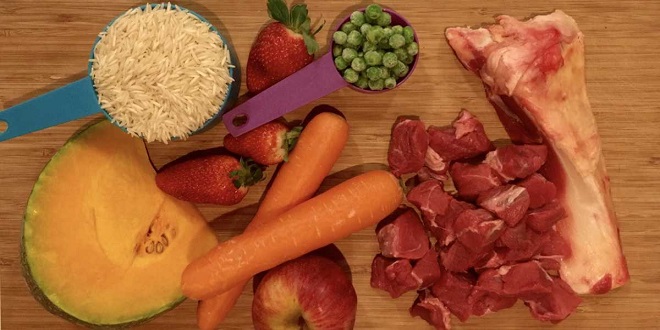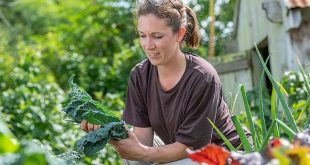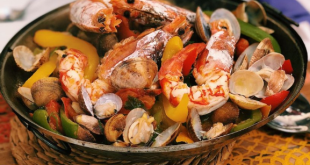Caring for your dog means more than just giving them love and attention, it also involves knowing what they’re consuming. And what could be a better way than preparing home cooked dog food recipes? Not only does this give you control over the ingredients, but it also guarantees freshness and adds variety.
Note: Always make sure to consult with your vet before making changes to your dog’s diet.
Reasons for Opting for Homemade Dog Food
The benefits of homemade dog food are worth taking into account:
- Control Over Ingredients: This puts you in charge of what goes into your dog’s diet; you can avoid harmful additives, chemicals, and low-quality ingredients.
- Customizing to Your Dog’s Needs: Every dog is unique, and dietary requirements can differ based on breed, age, health status, and lifestyle. Homemade food allows for customization according to their needs.
- Quality Assurance: Preparing food at home means you are assured of the quality of ingredients used.
- Avoiding Allergies: Some dogs might be allergic to certain ingredients found in commercial food. Homemade food gives you the power to control potential allergens.
- Variety: Commercial dog food is often made with the same ingredients over and over again. Homemade food allows you to mix up your dog’s diet with different meats, vegetables, and grains. This can help prevent boredom and ensure that your dog gets all the nutrients he needs.
Before switching to a homemade diet, it’s essential to understand the nutritional requirements of dogs. Dogs require a combination of protein, carbohydrates, fats, vitamins, and minerals to maintain good health.
Vet-Approved Homemade Dog Food Recipes
The following are vet approved homemade dog food recipes that are balanced and nutritious starting points for your dog’s diet:
- Turkey and Vegetable Mix
Ingredients:
- 5 pounds of ground turkey
- 5 cups brown rice
- 1 (15-ounce) can of kidney beans, drained and rinsed
- 5 cups chopped carrots
- 5 cups green beans
- 5 cups peas
Preparation:
- Cook the turkey in a non-stick pan until there is no pink left.
- Cook the rice as per the directions on the package.
- Mix the turkey, beans, vegetables, and rice in a pot and mix them thoroughly.
- Let it cool and store it in an airtight container in the refrigerator.
Make sure to adjust the serving size based on your pet’s weight, age, and activity levels.
- Healthy Protein with Quinoa:
Ingredients:
- 2 pounds of lean meat (beef, chicken, or lamb)
- 1 cup quinoa
- 2 cups mixed vegetables (carrots, broccoli, and peas)
- 4 cups of water
Preparation:
- Lightly cook your lean meat in a pan, ensuring it’s thoroughly cooked.
- Boil quinoa and vegetables in water until they’re softened.
- Mix your cooked meat and vegetables with quinoa, then lower the heat to let it simmer.
- Let it cool before serving.
- Beef and Pumpkin Stew
Ingredients:
- 5 pounds of beef stew meat
- 5 cups pumpkin
- 1/4 cup peas
- 1/4 cup carrots
- 2 cups beef broth
Preparation:
- Cook beef stew meat in a large pan until it’s well-cooked.
- Add pumpkin, peas, carrots, and beef broth to the pan and cook on medium heat until the vegetables are tender.
- Allow to cool and serve.
Remember to consult with your vet for serving sizes.
These meals can be stored in airtight containers and kept in the refrigerator for a week, or frozen for up to a month.
The Balanced Diet
Creating a balanced diet requires understanding the key nutrients:
- Protein sources: lean meats like chicken, turkey, beef, fish.
- Carbohydrates: Sweet potatoes, brown rice, quinoa.
- Vegetables: Carrots, pumpkin, peas, and green beans.
- Fats: Obtained from the protein source and certain vegetables.
Foods to Avoid in Homemade Dog Food
While making homemade dog food can be a great way to enhance your dog’s nutrition, it’s essential to keep some ingredients out of your recipes. Here is a list of common foods that are harmful to dogs that you should never include in your recipes:
-
Chocolate
Chocolate contains theobromine and caffeine, which are both toxic to dogs. Even small amounts of chocolate can potentially cause serious health problems for your dog.
-
Grapes & Raisins
Grapes and raisins, even consumed in tiny amounts, can lead to irreversible kidney damage or even kidney failure in dogs.
-
Onions & Garlic
These two common cooking ingredients are toxic to dogs. They can lead to gastrointestinal irritation and further result in damage to red blood cells.
-
Alcohol
Dogs’ livers aren’t equipped to break down alcohol efficiently, which can lead to alcohol poisoning. This includes foods cooked with alcohol.
-
Macadamia Nuts
These nuts are particularly poisonous to dogs, causing symptoms such as vomiting, lethargy, hyperthermia, and tremors.
-
Bones
Not every type of bone is safe for dogs. Cooked bones can splinter and cause blockages or damage to your dog’s digestive tract.
-
Avocado
Avocados contain a toxin known as persin, which can upset your dog’s stomach, resulting in vomiting and diarrhea.
-
Coffee or Caffeine
Caffeine is highly toxic to dogs and can lead to numerous health issues, like rapid breathing, restlessness, heart palpitations, and muscle tremors.
-
Xylitol
Xylitol is a sugar substitute often found in chewing gum and certain baked goods. It can cause a quick release of insulin in dogs, resulting in hypoglycemia (lowered sugar levels).
-
Raw Eggs, Raw Meat and Raw Fish
Raw eggs can carry Salmonella or E. coli, which can be harmful to dogs. Raw meat and fish may contain parasites, leading to foodborne illnesses.
Before introducing any new foods to your dog’s diet, it’s always best to do thorough research or consult with your vet. It’s important to remember, that what might be healthy for humans, may not necessarily be safe or healthy for dogs.
Conclusion
Homemade dog food doesn’t mean that you have to say goodbye to commercial products entirely. It’s about integrating healthier, fresher foods into your dog’s diet. Always remember to consult with your vet before making any changes, and understand that it’s about balance, nutrients, and moderation. With a little insight and preparation, you can prepare wholesome dishes for your furry friend’s long and healthy life.
 Isaiminia World Breaking News & Top Stories
Isaiminia World Breaking News & Top Stories




